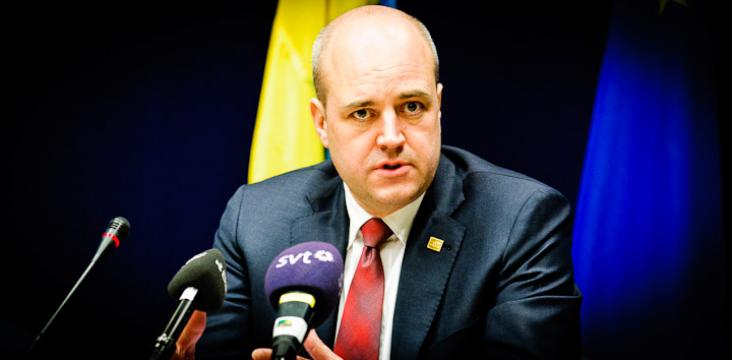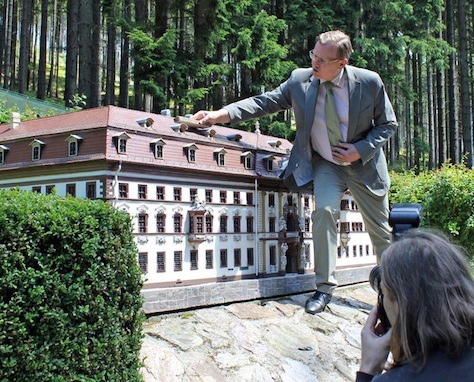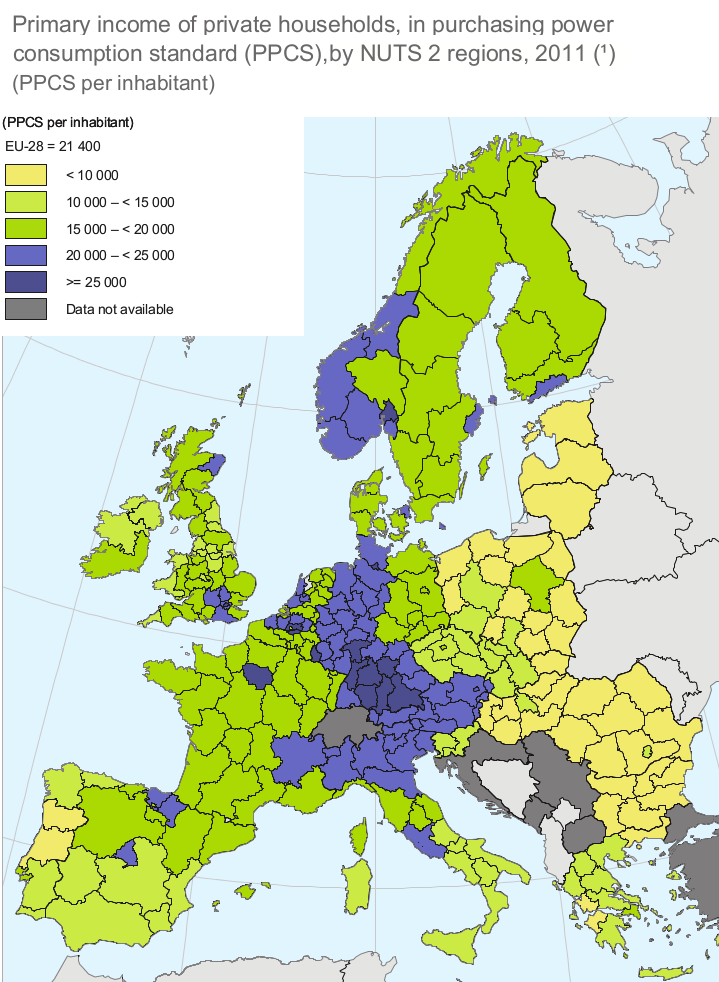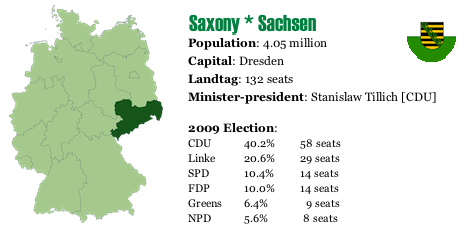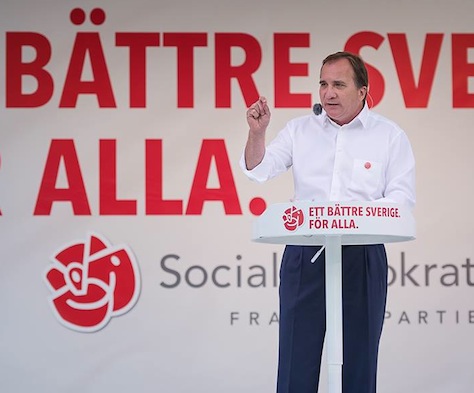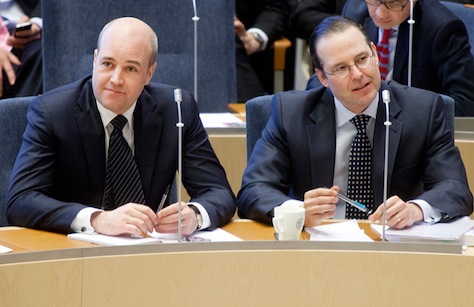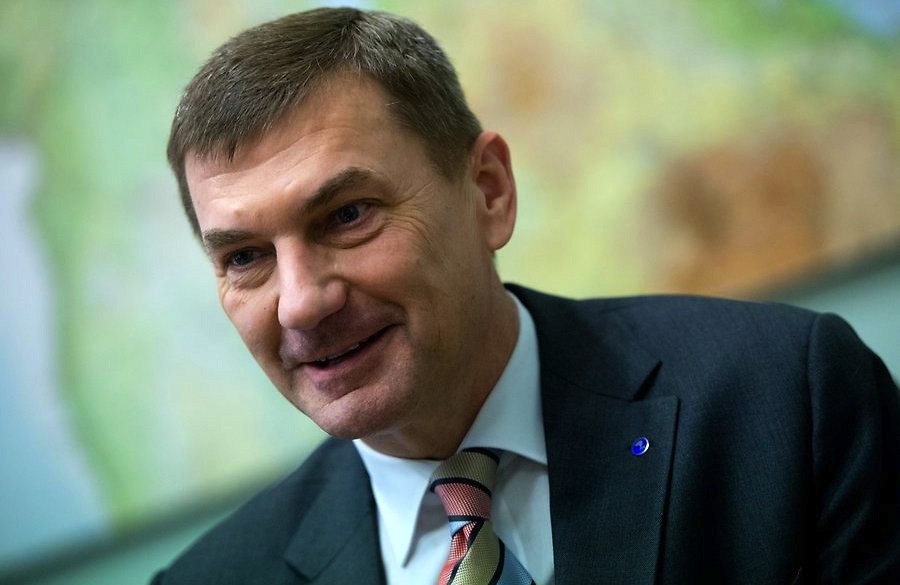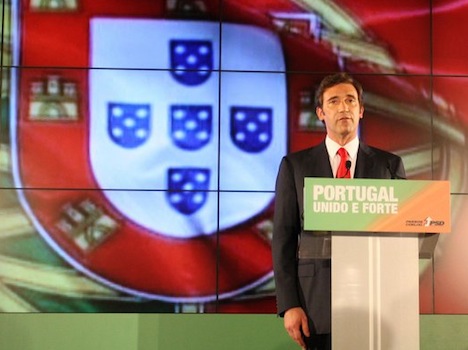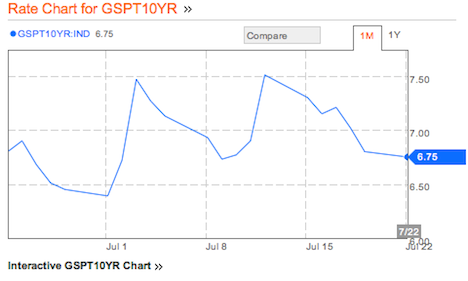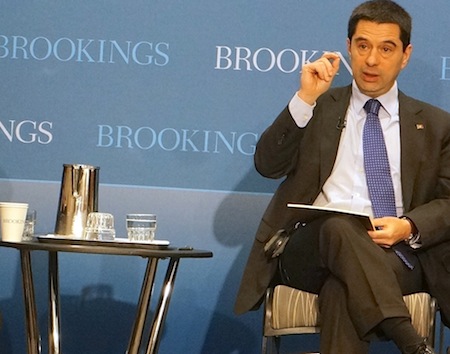When Swedes finish voting on Sunday in general election, they might find that, to their astonishment, the only party with the seats to deliver a majority coalition is the one that both the right and left have treated as politically radioactive for years.![]()
In the final days of the campaign, the race has tightened between the four-party center-right alliance headed by two-term prime minister Frederik Reinfeldt (pictured above) and the loose confederation of social democrats, greens and socialists that would rally behind Stefan Löfven, the former labor union leader who now heads Sweden’s center-left Sveriges socialdemokratiska arbetareparti (Swedish Social Democratic Party), which essentially created the Swedish social welfare state in the 20th century.
If the results are close, it could leave the balance of power in the hands of the far-right, anti-immigrant Sverigedemokraterna (SD, Sweden Democrats), even though the party entered the final week of the campaign crippled after news reports revealed racist online commentary of several of the party’s candidates.
Though Löfven’s Social Democrats (and the left, generally) have held a polling lead for much of the the past year, a September 1-4 Sifo poll from showed the left’s generic lead falling to less than 4.9%. A more recent September 8-9 Sifo survey showed the left recovering a greater margin of 7.8%. But up to one-third of the Swedish electorate may still be undecided going into the election on Sunday, making predictions difficult.
Despite Löfven’s lead, many voters approve of Reinfeldt’s performance over the past eight years, most especially as his record relates to the Swedish economy. Sweden has emerged from both the 2008-09 global financial crisis and the 2010-12 eurozone crisis with stronger economic growth than much of the rest of the European Union. While unemployment is still probably too high at around 8%, the rate is slowly declining. But Swedes don’t dislike Reinfeldt. It’s that that Swedes are ready for a change, and Löfven’s moderate social democratic approach would bring more continuity than rupture.
* * * * *
RELATED: One month out, Löfven and Social Democrats lead in Sweden
* * * * *
Though the two Sifo polls this month showed support for the Sweden Democrats dropping from 10.4% to 8.9%, even a ‘poor’ showing would eclipse their previous high point in the 2010 election, when they won 5.7% of the vote. The 2010 breakthrough was a watershed moment for Sweden’s far right — much to the dismay of the rest of the political spectrum. Suddenly, a far-right party that had never held any seats in the Riksdag, Sweden’s parliament, now held 20.
So even if the Sweden Democrats under-perform in the 2014 election (they won around 9.7% in the May European elections), they could still hold a large enough bloc of seats to deny either the Reinfeldt-led right or the Löfven-led left a majority.
Though the current center-right government has only a minority in the Riksdag, it has often unofficially leaned on the Sweden Democrats for support, though it’s also turned to the Miljöpartiet (Green Party) as necessary on issues like refugees and asylum.
Continue reading Swedish far-right could inadvertently deliver 3rd term to Reinfeldt
